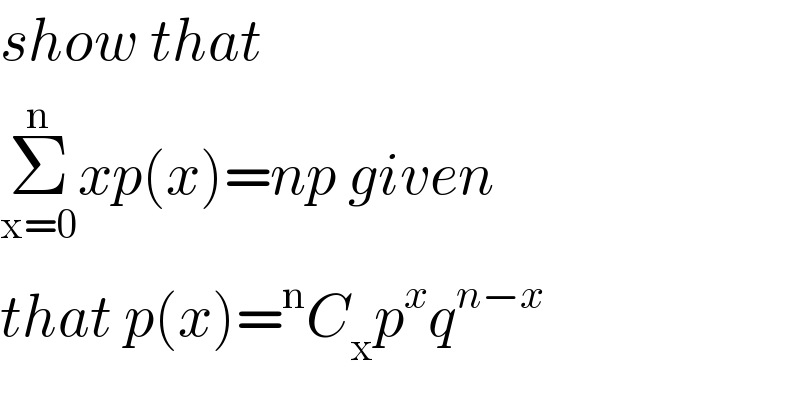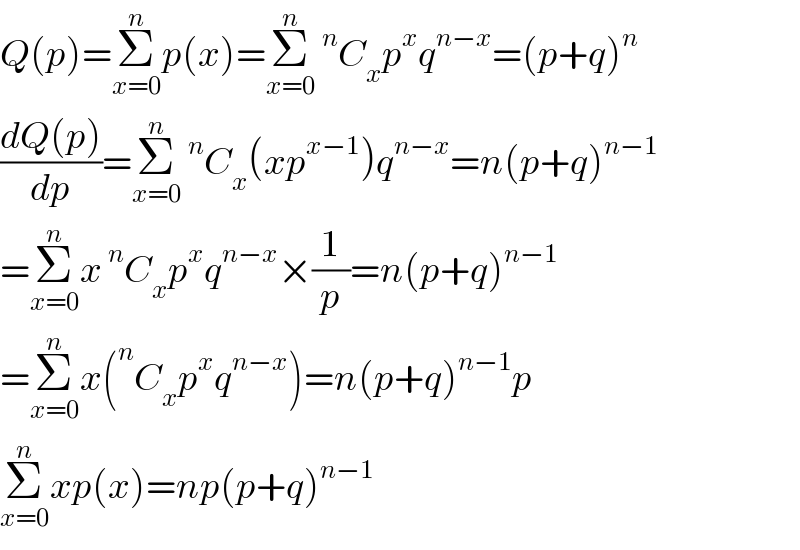
Question and Answers Forum
Previous in Probability and Statistics Next in Probability and Statistics
Question Number 50856 by peter frank last updated on 21/Dec/18

Answered by Smail last updated on 21/Dec/18

Commented by Smail last updated on 21/Dec/18

Commented by peter frank last updated on 21/Dec/18

Commented by Smail last updated on 22/Dec/18

